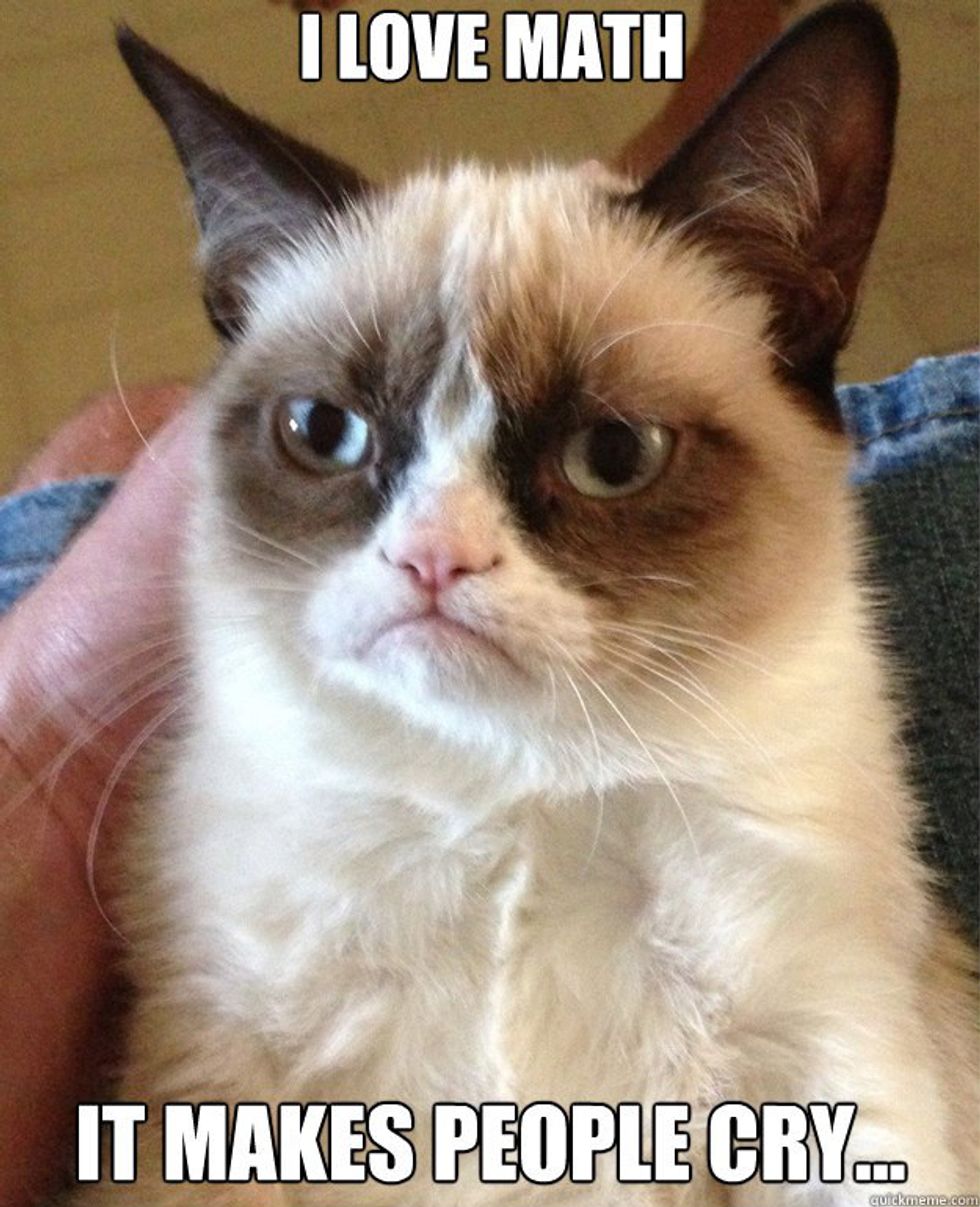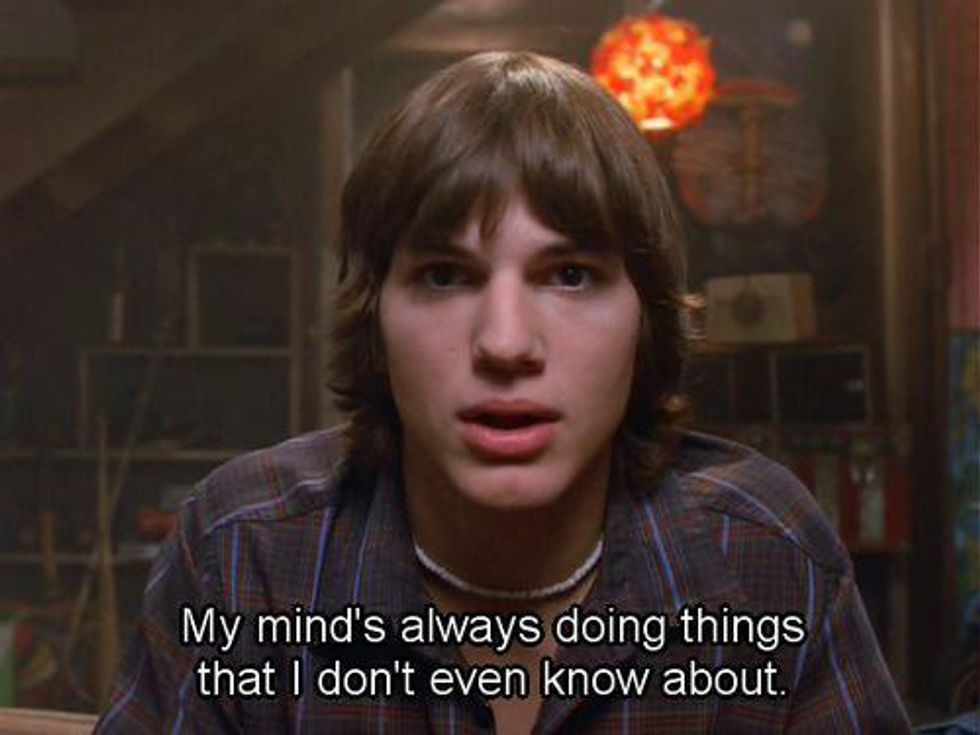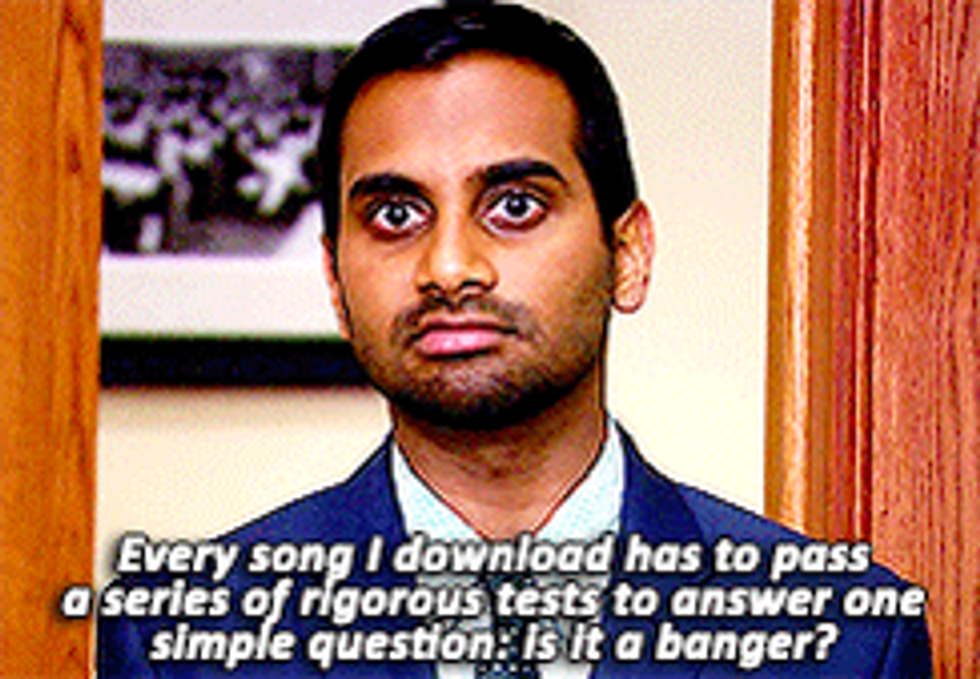“So, what are you studying?,” they ask, pulling out the arsenal of typical get-to-know-you questions that all college students know by heart. “Well, I’m doing a pre-med track, but my major is mathematics,” I reply. This tends to elicit only a few different types of reactions: surprise, because math isn’t a common major; or admiration, because math is seen as a subject that is very difficult and only accessible to a small population of nerdy elites. Inevitably, however, one question I get at some point in this conversation is, “Why?”
Grumpy cat has her reasons for liking math and I have mine
That question has several levels of implications. Wrapped up in that three-letter word combined with this context and the tone of voice used, are several questions about my motives for studying such a lofty field. First, there’s the question of, “Why do you like math?” because frankly, math has a well-known reputation for being a perfect combination of boring, repetitive work, and confusing problems and symbols that seem indecipherable. Secondly, there is the question of, “Why are you studying math if you want to go into medicine? Shouldn’t you study something more applicable to your future career?” My usual response to these questions within a question is a shrug and, “I don’t know, I just like it. Math feels like a fun puzzle to me.”
I’d be remiss if I didn’t acknowledge the validity of the latter perspective mentioned above. The more advanced the math is that I study, the less applicable it is to real life. For me, the utility of studying math lies not in the concepts that I learn, but the processes and the perspectives that can be drawn from it. The basis of higher mathematics (i.e., beyond calculus) involves taking familiar concepts such as functions, real numbers, and operations like addition and multiplication, stripping them of all the properties that we tie to them in grade school, and working with only their most basic components. Then we reconstruct them by using precise definitions for the simplest concepts found at the core of these components, carefully using definitions, to thoroughly prove the properties that many people assume to be true simply by consensus. From these rigorously proved theorems, we can then build on them in any direction, with the same diligence, to discover some very beautiful mathematical notions.
Learning to master and appreciate this process is difficult (frankly, I can’t say I’m anywhere close), but also valuable on many levels. First of all, this process requires you to leave almost all assumption and intuition at the door and only use an idea if you can thoroughly explain its validity. Also, the process of this explanation allows you to refine your logical faculties by using them at the most fundamental level. It requires that whenever you come up with a proof or a theorem, you ask yourself: Is this really true for all cases? Is there any case in which this isn’t true?
“You think you know, but how do you KNOW you know, y’know?”
I think that a lot of these skills can be applied in many ways outside the classroom. Being able to really verify the validity of a claim made in math class has helped me to become cognizant of the logical leaps and assumptions that I make in all aspects of my life, from other classwork to analyzing politics, and even in analyzing my emotional relationships and all that other gross feelings nonsense.
Contrary to the belief that math-minded individuals are all logic and no feeling, using a logical frame of mind allows for acknowledgment of emotional influence in decision-making. In learning how to think in a totally logical mind-frame, it is necessary to acknowledge where logic falls short. When making decisions in a setting outside the “simplicity” of modern mathematics, oftentimes logic can lead in many directions depending on the starting assumptions. For this reason, at junctures of this type, it is necessary to realize that the path you take is a conscious choice. In other words, it allows for a more objective process that at the same time better acknowledges the input of subjectivity in the evaluation.
Even before getting to the really trippy math stuff (like, how do we know that this infinity isn’t bigger than this OTHER infinity, man?), being able to really appreciate and embrace the meaning of multi-dimensionality is one of the most important paradigm shifts I’ve experienced in my studies. By this I mean the idea that certain elements can be defined by several characteristics that are independent of each other, and that reducing them to one dimension is always an imperfect process (We all know it's not possible for EVERY movie to be the #1 movie in America). In other words, when talking about quality of a certain element, element X is always better or worse than element Y, yet these sorts of evaluations are always simplistic. To give a simple example, how many times have you heard an argument to the tune of: “Song X is terrible. I think song Y is much better.” “That’s not true! Song Y is so much better than song X!." When thinking about how each individual evaluates the quality of a song, it’s not simply in terms of good or bad, but it involves evaluating multiple characteristics and then weighing the relative degree of importance of each of those characteristics. That’s not to say that everyone goes through a rigorous process of quantifying every aspect of a song and using those results to determine its worth a la Tom Haverford from "Parks and Rec," but everyone has their own scale that takes several different traits into account, which could in some sense be considered different dimensions of song quality.
Think about it: is a banger ALWAYS better than a non-banger?
Being able to evaluate something based on several different influencing factors without trying to squeeze the result onto a line of “better than” or “worse than” is a good way to keep a more open perspective. Even when discussing politics, much of the conversation is filled with “Candidate X is clearly better than Candidate Y because they have a much better stance on Issue Z." This leads to single-issue voters (*cough* Trump supporters/Tea Party *cough*) who evaluate the potential of a candidate on one single issue. A better way to think about any topic of this sort is to acknowledge the ways in which certain candidates outrank others in terms of one dimension, one characteristic, and then seeing how the coordinates of each candidate line up with the voter’s ideals to decide which candidate they prefer. It’s fine to say that, based on X, Y, and Z, you think that A is better than B, but you still have to acknowledge that this conclusion is based on the fact that some personal preference had to be used to turn a multidimensional evaluation into one dimension of better or worse.Overall, studying mathematics has taught me both the potential for logical thinking as well as the shortcomings that go along with it. It has helped me to refine my ability to analyze and reanalyze every conclusion that I make based on the assumptions leading up to it. It has also afforded me a better understanding the process of quantifying various aspects of reality in such a way that retains some of its complexities. Sure, there are some days where I can do nothing but bang my head against a book a few thousand times in hopes that enough brain damage will eventually give me clarity, but the moments where everything clicks and it all makes sense are worth the struggle.
























